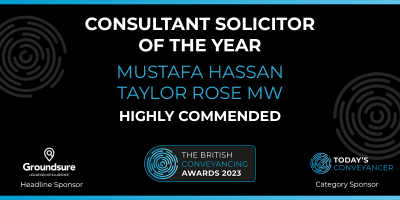Legal Case Studies
What are the consequences of untreated wet macular degeneration?
Toni Bedward, Solicitor in our Clinical Negligence department recently acted for a client who received an admission of liability and £30,000 in damages from University Hospitals Sussex NHS Foundation Trust following a delay in treating wet macular degeneration.
What is wet macular degeneration?
There are two types of age related macular degeneration (AMD), wet and dry. Dry AMD is a common cause of blindness in people over the age of 50. It causes very slow progressive visual loss and often has no symptoms.
On the other hand, wet AMD can cause very rapid visual loss and therefore requires urgent treatment. Wet macular degeneration is a chronic eye condition. It affects the macula, which is the central part of the retina. The macula helps with clear vision. Abnormal blood vessels grow under the retina and leak fluid or blood, causing damage to the macula in this condition.
The primary symptoms of wet macular degeneration include: 
-
distorted or blurry central vision
-
a dark spot in the centre of vision
-
difficulties recognising faces or reading.
-
a sudden worsening of vision
These symptoms usually occur over a couple of days and progress quickly.
If left untreated, wet macular degeneration can lead to severe vision loss and even blindness.
Our client, aged 72 at the date of negligence, attended his opticians on in June 2020 complaining of worsening vision in his left eye. It was noted that he had subretinal fluid in his left macula. He was diagnosed with wet age-related macular degeneration, and he was referred straight for an urgent assessment to be undertaken by an ophthalmologist at the Defendant Trust.
An appointment was arranged for 7 days later. At this appointment, scans were undertaken which confirmed a sub-macula haemorrhage and a second haemorrhage below the macula. It was agreed between the ophthalmology team that our client should be listed for an urgent tPA (tissue plasminogen activator), together with an anti-VEGF (Anti–vascular endothelial growth factor therapy) injection to dissolve the sub-macular blood clot and to close the membrane which was felt to be the cause of the bleeding. Our client was told that he required this treatment urgently.
Our client never received any further contact from the Trust in relation to his appointment. When his condition started to worsen, he contacted the ophthalmology department at the hospital to chase up an appointment. He was given misleading advice about his symptoms which did not factor in the urgent condition he was suffering from, and it was not realised that his urgent appointment had not been arranged.
Our client had to contact the Trust again to chase up the appointment before staff realised that the appointment should already have taken place and over 1 month had passed before the client was invited back to the hospital. Staff became aware that the correct administrative procedures had not been followed which meant that an appointment was never arranged for him to undergo the urgent treatment that he required.
Our client was informed that the treatment should have been provided within 5 days of his first appointment and that by the time of his appointment one month later, it was too late to have that treatment. Our client was also told that he had likely suffered permanent visual loss as a result of the delay. A course of injections were attempted to try and reduce the scarring on the macular area. Unfortunately, our client did not experience any reduction in the scarring and therefore no benefit in his vision.
Expert evidence from an independent ophthalmologist confirmed that it was negligent not to perform the urgent treatment within 5 days.
The expert also confirmed that as a result of the delay our client had suffered a reduction in the vision in his left eye to hand movements only. If he had been provided urgent treatment, the expert anticipated that our client would have had significantly better vision in the left eye than he had.
As a result of the loss of vision our client sustained, he was unable to undertake detailed electrical work which he did for friends and family, he also required additional lighting to perform all tasks, even during hours of daylight. He had to use a magnifier to read paper documents or to read digital documents he had to increase the font size on his computer.
He had difficulty understanding how close to, or far from objects he was, which meant that he had to take increased care both around the house and when he was out in public, particularly when negotiating steps, stairs and kerbs. His vision at nighttime was even worse. The loss of vision also effected the client’s enjoyment of his hobbies which he found frustrating and upsetting.
Shockingly, during the course of the case the Defendant Trust subjected the client to a further delay in diagnosis and treatment for the same condition in relation to the client’s right (good) eye, which our expert confirmed was a further breach of duty.
Fortunately, for our client, expert evidence confirmed that on this occasion although there was a delay, this did not have a causative effect on the client’s vision, meaning that the client’s vision did not deteriorate since his first attendance to report this problem. It is disappointing that the Trust has not learned from what happened to our client.
Toni was able to obtain an admission from the NHS Trust that the failure to provide urgent treatment in 2020 did amount to a breach of the Trust’s duty of care. Although the Defendant only admitted that the client would have suffered some visual loss as a result of the delay in treatment, Toni was able to secure compensation during negotiations which was more reflective of the client’s actual level of substantial visual loss.
If you feel you have a claim, our team of clinical negligence solicitors are here to listen and help you work out whether compensation may be available to you. Please do not hesitate to contact us at 020 3540 4444 or email us by clicking the 'contact us' button.
SHARE THIS ARTICLE
The templateTAKE A LOOK AT


















